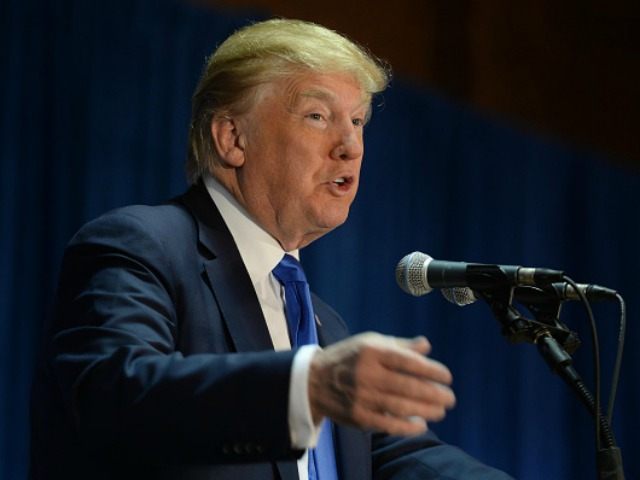In the 2016 presidential election, the Democrat Party’s fortunes, and those of frontrunner Hillary Clinton, are inexorably tied to President Obama’s handling of the growing crisis in the Middle East. The contest for the Republican nomination, meanwhile, is going through a major reshuffling that will likely winnow the currently crowded field.
The terrorist attacks on Paris last week are already changing the face of the race in the Republican campaign. The most recent Reuters 5-day rolling poll has Donald Trump surging to 38 percent support in the GOP nomination contest. His lead over the second place candidate, neurosurgeon Ben Carson, is more than 24 points. His support, in fact, is more than the next 5 candidates combined.
Prior to the Paris attacks, Trump’s support had been slipping slightly. A week before the attacks he had 28 percent support, while Ben Carson was second with 24 percent. Florida Sen. Marco Rubio had 10 percent support, while Texas Sen. Ted Cruz had around 7 percent support. Since the attacks, Rubio and Cruz have held their position in national polls, while Carson has lost considerable support.
Unsurprisingly, terrorism is once again the voters’ top concern, eclipsing both “jobs” and “the economy.” At the beginning of November, terrorism was ninth in a list of voters’ concerns. Among all Americans, Donald Trump is viewed as the best candidate to respond to terrorism, eclipsing even Hillary Clinton.
Republican voters, though, put Donald Trump far ahead of his fellow candidates on dealing with terrorism. Four-out-of-ten Republicans think Trump is best suited to combat terrorism. This is four times greater than the next choice, Sen. Marco Rubio, who has made foreign policy the centerpiece of his campaign. Carson and Cruz are each the choice of just around 7 percent of Republicans.
These polling results will come as a surprise to leaders of the Republican establishment, who believed a focus on “serious” issues would erode support for Trump and other outsider candidates. Jeb Bush has actually lost considerable ground in nationally polling since the Paris attacks. In early November, he had the support of around 10 percent of Republican voters. Today, his support has halved to around 5 percent.
The Republican party establishment has been operating under a terribly misguided myth. It looked at the strong support for outsider candidates as simply frustrated voters venting anger. Once the voting grew close or voters concentrated on serious issues, it told pundits, the outsider candidates would fade.
It turns out the voter anger wasn’t a distraction but a preview of sentiments that have come into even sharper relief with the renewed threat of terrorism and growing crisis in the Middle East. Voter anger with the Republican establishment is even more pronounced when the stakes are gravest.
An overwhelming majority of Americans, 78 percent, think Syrian refugees should have to undergo increased scrutiny before entering the U.S., according to a new CBS poll. A majority of Americans, however, don’t think any Syrian refugees should be allowed into the country at this time. Among Republican voters almost 70 percent favor blocking all resettlement efforts for now.
A majority of Americans favor deploying U.S. troops to Syria to combat the Islamic State, but, two-thirds of Republicans support ground troops.
Donald Trump has staked out the strongest positions on both questions. It isn’t surprising then that his fortunes are rising in the nomination contest. Fortunately for the Republican party as a whole, the public is also moving in this direction.
Just 23 percent of Americans believe President Obama has a plan to deal with the terrorist Islamic State. Even 45 percent of Democrats say Obama doesn’t have a plan to deal with the Islamic militants. Obama’s weakness of this front is likely to negatively impact Hillary Clinton’s candidacy.
In a new Fox News poll, 66 percent of Americans said that the U.S. is at war with radical Islam. Note, Americans believe the nation is at war with radical Islam generally, not just specifically the Islamic State. Unfortunately, 63 percent of Americans believe the country is doing badly in this war.
It is going to be almost impossible for Hillary Clinton to campaign to extend the Obama Presidency if the public believes we are currently losing a war under the President’s leadership. Indeed, the same Fox News poll found Clinton losing to all possible GOP candidates, with the exception of Carly Fiorina, whom she ties.
The current perceived strength of the Islamic State is certainly a factor in this. An overwhelming majority of Americans, 65 percent, think Obama hasn’t been aggressive enough in combating the militant Islamic terror group. The Democrat’s challenge goes beyond this specific enemy, though. A strong majority of Americans, 56 percent, believe it is “wrong” that Democrat candidates won’t name radical Islam as the main force behind the current terror attacks.
The terror attacks in Paris changed the political landscape. It is transforming the Republican nomination fight into a battle between Trump, Rubio, Cruz and, to a much lesser extent, Ben Carson. Carson is trying to quickly immerse himself in foreign policy issues, but voters aren’t likely to indulge a long learning curve on issues of security.
The political fallout is most pronounced for Democrats, however. Americans increasingly view our nation as being at war. A political party that not only can’t acknowledge that, but is reluctant to even state the name of our enemy is unlikely to be trusted with the White House.

COMMENTS
Please let us know if you're having issues with commenting.